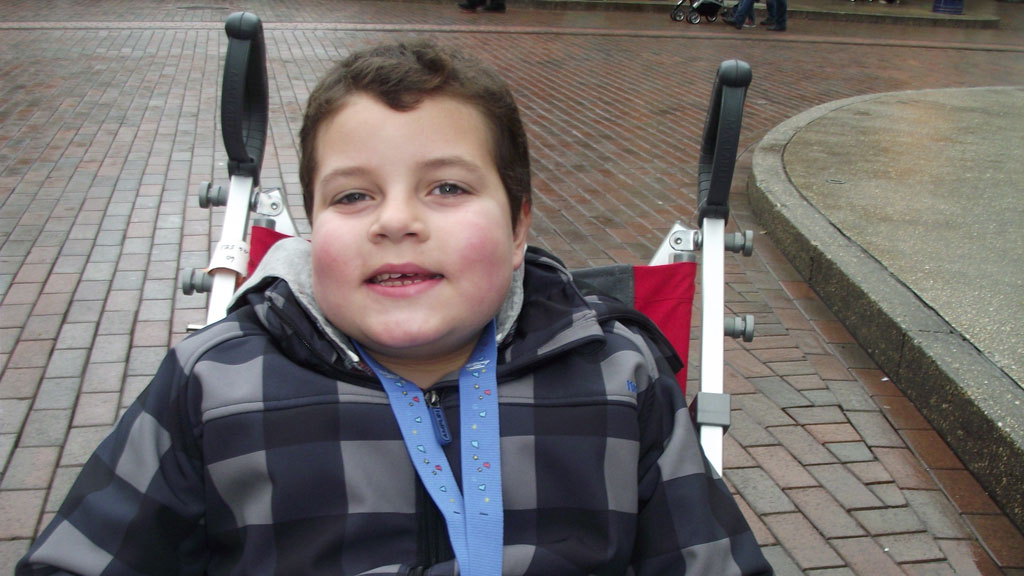My son ‘wouldn’t be here’ without radiotherapy
With the Neon Roberts case being heard in court, a mother tells Channel 4 News that although the side effects of radiotherapy can be serious, her son would have died if he had not had treatment.

Llywelyn Bowmer, from Clydach, near Swansea, was four-and-a-half when he was diagnosed with a brain tumour.
Like Neon Roberts, he underwent surgery, but was advised by doctors that he would also need radiotherapy, in which high-energy rays are used to kill cancer cells in a particular part of the body.
Doctors say Neon, seven, could die in a matter of months without radiotherapy, but his mother Sally is in court because she believes there is a danger that by going through this treatment his future growth and IQ could be adversely affected.
“The consultant said if he doesn’t have it, he will probably die. I didn’t question it.” Melissa Bowmer
After Llywelyn’s operation, his mother Melissa, 43, was told he needed radiotherapy “to stop any rogue cells from growing anywhere else”.
As if worrying about her son were not enough, she was also being treated for breast cancer and went through a course of radiotherapy at the same time as him.
“We were kept totally informed about what would and would not happen to him,” Melissa told Channel 4 News. “The doctors would come in and say, ‘This is what we think we should do; how do you feel?’ I often say we wouldn’t have received better care if we’d gone private.
“The consultant said if he doesn’t have it, he will probably die. I didn’t question it. If there was no chance of a good outcome they would have said, ‘Go home, use pain relief and use the time you’ve got’.”
Side effects
But Melissa was warned that, for a very young child, the side effects of this “cruel and brutal” treatment were likely to be serious.
“He said he would probably not leave home because he wouldn’t have enough life skills. As much as they’d try to protect the rest of his brain, there would be damage done.
“He said, for example, if he wants to be a doctor, he will probably not become a doctor. He left us under no illusions.”
Llywelyn is now nine and enjoying life, but the consultant at Noah’s Ark Children’s Hospital in Cardiff was right: he is unlikely to be able to live independently.
“He wouldn’t be able to look after himself in simple ways. He would have to have some kind of supervision.”
Growth
He has stopped growing “upwards”, has to be injected with growth hormones, and his mental faculties have been affected.
“He learns very little. He is nine and he can only now write his name and he cannot read. It has reduced his IQ, but it hasn’t reduced his enjoyment of life. He is a happy boy and he has a good life.”
Llywelyn also relies on a wheelchair because his legs “tire”, and Melissa is convinced that 90 per cent of his difficulties are due to his 35 days of radiotherapy, although she points out that an older child would probably fare better.
But she is grateful he had the treatment because without it, “we wouldn’t have him; he wouldn’t be here”.
Melissa Bowmer and her husband Shaun received support and advice from the children’s cancer charity, CLIC Sargent, when their son Llywelyn was diagnosed with a brain tumour.
-
Latest news
-
As India goes to the polls in the world’s largest election – what do British-Indians think?6m

-
Tees Valley: Meet the candidates in one of the biggest contests coming up in May’s local elections4m

-
Keir Starmer says public sector reform will be a struggle7m

-
Nicola Sturgeon’s husband Peter Murrell charged with embezzlement of funds from SNP1m

-
Ukraine might finally get $60billion in American weapons and assistance to defend against Russia3m

-




